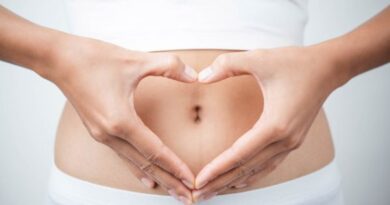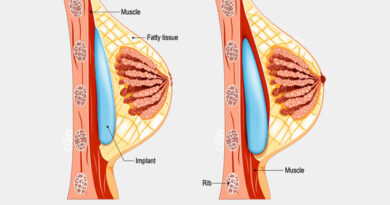Know All About The Pregnancy Hormones
We know that, you blame it on the hormones for bringing in the changes during your pregnancy. Well! For that “pregnancy brain” which makes you forget half of the things most of the time, skin rashes, bloating and for making you cry at the drop of the hat, undoubtedly your hormones are the responsible.
But that’s not fair! The hormones are not always bad, you know! There are some, which can make the uterine lining soft, they help in bringing the “pregnancy glow”, they significantly help the baby inside the womb to grow and develop and eventually trigger the breasts to produce more milk.
It might also intrigue you to know, that once you’ve given birth to your baby, there are some hormones that help in removing those which were involved during your pregnancy, and allow the others to the come in the frontline and start working.
Phewww! Thinking that’s a lot? Well, don’t worry… If you’re interested to know… We’re are to help you out.
So, read on, all that you need to know about the pregnancy hormones.
Oestrogen, the Main One
This is the main hormone which significantly aids in the sexual development of a woman. Not just that! It also contributes in the growth of the breasts, regulates the menstrual cycle and keeps the cholesterol level absolutely under control.
Oestrogen’s Role During Pregnancy?
Oestrogen and progesterone hormones go hand-in-hand to play a roller-coaster ride, once a woman is pregnant. The ovaries produce the oestrogen hormones first. However, the placenta give rise to it later on, and during pregnancy It helps in the uterine growth, maintains the lining, helps in the organ growth of the baby inside and keeps other main hormones under check.
Moreover, for stuffy nose, and itchy and blotchy skin, oestrogen’s to be blamed during pregnancy. And that’s not all! When it’s time to breastfeed, it boosts the breast tissues of the new mom and increases the supply of milk.
Progesterone, Other Half of the Oestrogen
Is mostly produced by the ovaries, after every ovulation. It keeps the menstrual cycle under control and plays another big role in developing the sexual hormones in women.
Progesterone’s Role During Pregnancy?
Since this hormone has a role to play after ovulation, it makes the uterine lining soft and receptive to help a fertilized egg get implanted in the lining, thus making a woman pregnant. Besides this, while a woman is pregnant, it is active in giving her the gastrointestinal woes, thus making her feel the burns in the heart, constipated, bloated and so on and so forth.
Follicle Stimulating Hormones (FSH) the First in Hormones’ Cascade
Is produced by the pituitary gland in the brain, to stimulate the eggs in the ovary, to produce more oestrogen hormones and to help in regulating the menstrual cycle. In fact, the FSH level in a woman keeps changing throughout the menstrual cycle. It is indeed at the top exactly before ovulation (before the ovary releases the egg)
FSH Role During Pregnancy?
FSH hormone’s role in releasing eggs, indicates its importance in making a woman become pregnant. Actually, while performing its function of launching pregnancy, it produces more of oestrogen hormones and helps in stimulating the eggs. In fact, those women who are pregnant with twins tend to have their FSH levels high
Luteinizing Hormones (LH), a Product of the Soaring Oestrogen Levels
It works hand – in – hand with FSH to keep the menstrual cycle under its eye. Not just that! It has an important function in the sexual development of a woman. In fact, these hormones start rising before ovulation, triggering the release of the eggs from the ovary. But if in about 14 days of ovulation, a woman doesn’t become pregnant, the LH hormone levels tend to drop and she is expected to go down with her periods.
LH Role During Pregnancy?
While the FSH hormones produce more oestrogen hormones and helps in stimulating the eggs in the ovaries, oestrogen hormones prompt LH for opening up the post ovulatory follicle and free up the eggs, thus making a woman pregnant, within 14 days. In fact, the follicle produces the corpus luteum, which is responsible for the production of progesterone hormones, during pregnancy, thus softening the uterus and helping in the development of the unborn baby.
Prolactin Helps the Breasts
Prolactin hormones, produced by the pituitary gland essentially helps in lactation and milk production after delivery.
Prolactin’s Role During Pregnancy?
It helps in enlarging the breasts, and producing milk for the baby, while the new mother is breastfeeding. Besides this, it also boosts the adrenal glands to trigger hair growth maybe on the face or belly, six months after the delivery of the baby.
Relaxing Lives Up To Its Name
As after ovulation, its level rises and helps in making the uterine wall ready for pregnancy. Plus, during pregnancy, it not just keeps the muscles, bones, ligaments, joints and pelvis relaxed and prepared for labour, but also softens and lengthens the cervix. However, if a pregnant woman sometimes feels wobbly and out of balance, it is due to the relaxing hormones.
Oxytocin, Muscle Contracting Hormone
Produced by the hypothalamus (part of a brain that controls the functions of the body, including the hormones from the pituitary gland), mostly helps in stimulating labour and pushes it towards delivery. And once the baby is delivered, it this oxytocin which helps in shrinking the size of the uterus and produce milk in the breasts.
- Cortisol aids in foetal lung functions and maturation
- Endorphins are naturally happy brain hormones that helps in enduring the labour pain.
- Vasopressin leads to water retention and
- Thyroxin increases the pregnant mother’s oxygen consumption, regulates and stimulates the foetal growth and helps in the development of the baby’s central nervous system.
Therefore, till the time you have given birth to your baby, these are really powerful chemicals that’s working hard on your behalf to help you sail through a healthy pregnancy. So, as you experience even the slightest change in your body or mind, consult the doctor and have fun while you get to know each one of the hormones quite explicitly.
Author Bio: Prapti Chauhan is a professor of Genetics in Bangalore. She has contributed to several online research papers. However, she passionately develops contents on pregnancy, childbirth, childcare and benefits of cord blood banking and umbilical cord lining and more.




